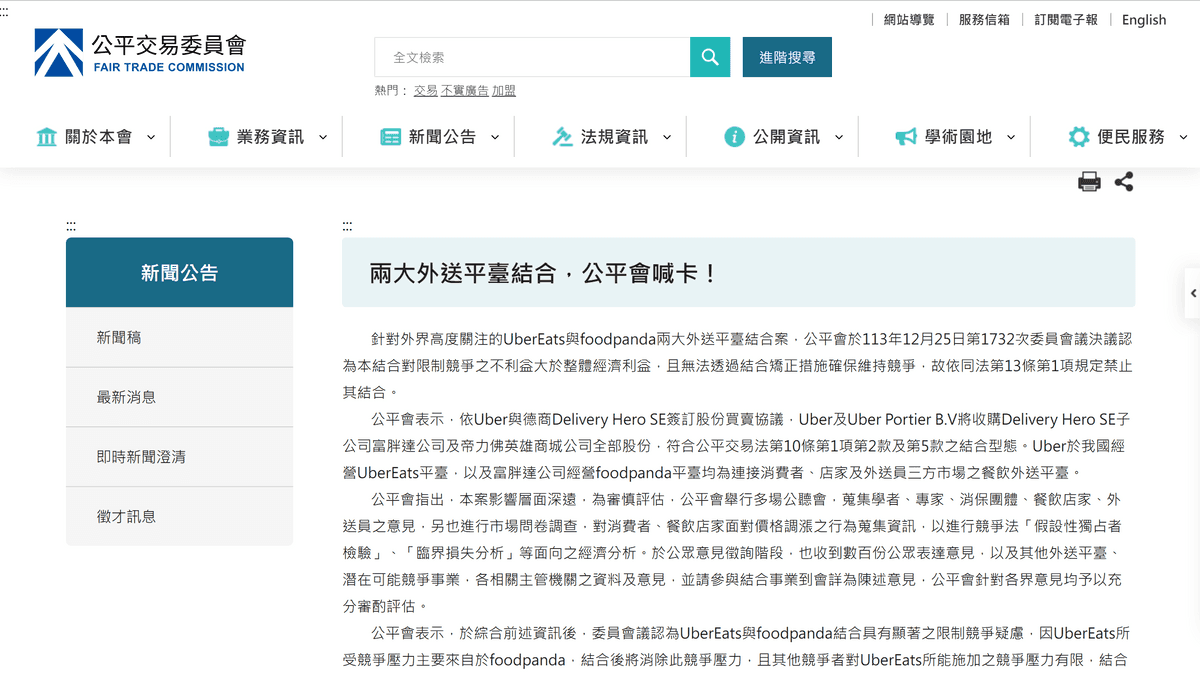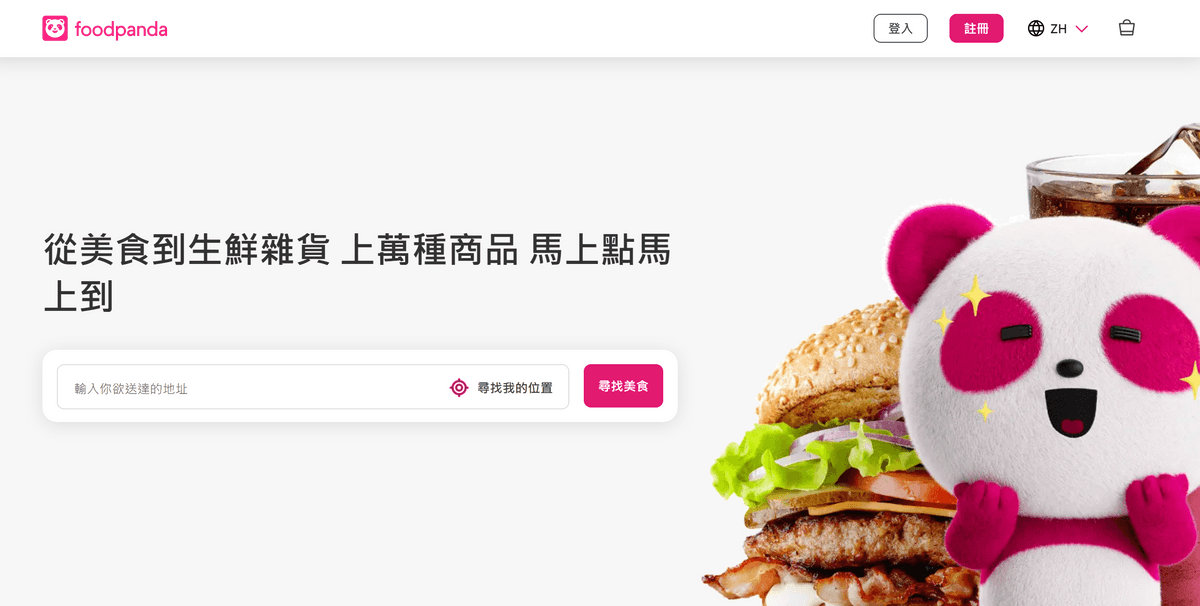Taiwan's Fair Trade Commission blocks Uber's acquisition of food delivery service foodpanda because the combined market share of the two companies would be over 90%, reducing competition

Taiwan's Fair Trade Commission, an agency equivalent to Japan's Fair Trade Commission, has announced that it will ban the merger of UberEats and foodpanda, both online food delivery services in Taiwan.
Two large overseas transfers on a flat scale, a fair tournament!
https://www.ftc.gov.tw/internet/main/doc/docDetail.aspx?uid=126&docid=17952

FTC blocks Uber's Foodpanda plan - Taipei Times
https://www.taipeitimes.com/News/front/archives/2024/12/26/2003829127
Taiwan FTC blocks Uber Eats-Foodpanda merger | Taiwan News | Dec. 25, 2024 14:31
https://www.taiwannews.com.tw/news/6001286
Taiwan blocks Uber's $1.3 billion Foodpanda deal over competition concerns | The Straits Times
https://www.straitstimes.com/business/companies-markets/taiwan-blocks-ubers-1-2b-foodpanda-deal-over-competition-concerns
UberEats, operated by Uber, and foodpanda, operated by Delivery Hero, are both food delivery platforms that connect consumers, stores, and delivery staff. Together, they have a 90% share of Taiwan's food delivery market and are competing as the two largest platforms.

Uber announced plans to acquire the Foodpanda business for $950 million (approximately 150 billion yen) on May 14, 2024. On November 8, 2024, Uber submitted the information necessary for the Fair Trade Commission's review, and the Fair Trade Commission was investigating the impact.
After comprehensively reviewing the results of public hearings, market surveys, economic analyses, etc., the Fair Trade Commission announced that it would prohibit Uber from acquiring the foodpanda business for the following reasons: 'UberEats' main competitor is foodpanda, and the acquisition will eliminate competitive pressure,' 'other food delivery platforms are less competitive and it will be difficult for new entrants to enter the market, which will increase UberEats' pricing power after the acquisition,' and 'consumers and small and medium-sized restaurants will be unable to compete with UberEats' market dominance.'
In its application for the acquisition, Uber stated that increasing the density of its delivery network would improve delivery efficiency and convenience for users. However, the FTC stated that 'Uber's claims are difficult to verify' and concluded that the negative impact of the acquisition being the elimination of competition in the market would be greater.

Furthermore, Uber proposed to take corrective measures after the acquisition, but the FTC determined that 'Uber's proposal is a short-term and temporary corrective measure, and it will be difficult to reconstruct and maintain the competitive state before the acquisition.'
Uber said it 'firmly believed this transaction was in the best interests of our delivery partners, merchant partners, consumers, and Taiwan's economy,' and expressed disappointment with the committee's decision.
Related Posts:
in Web Service, Posted by log1d_ts







